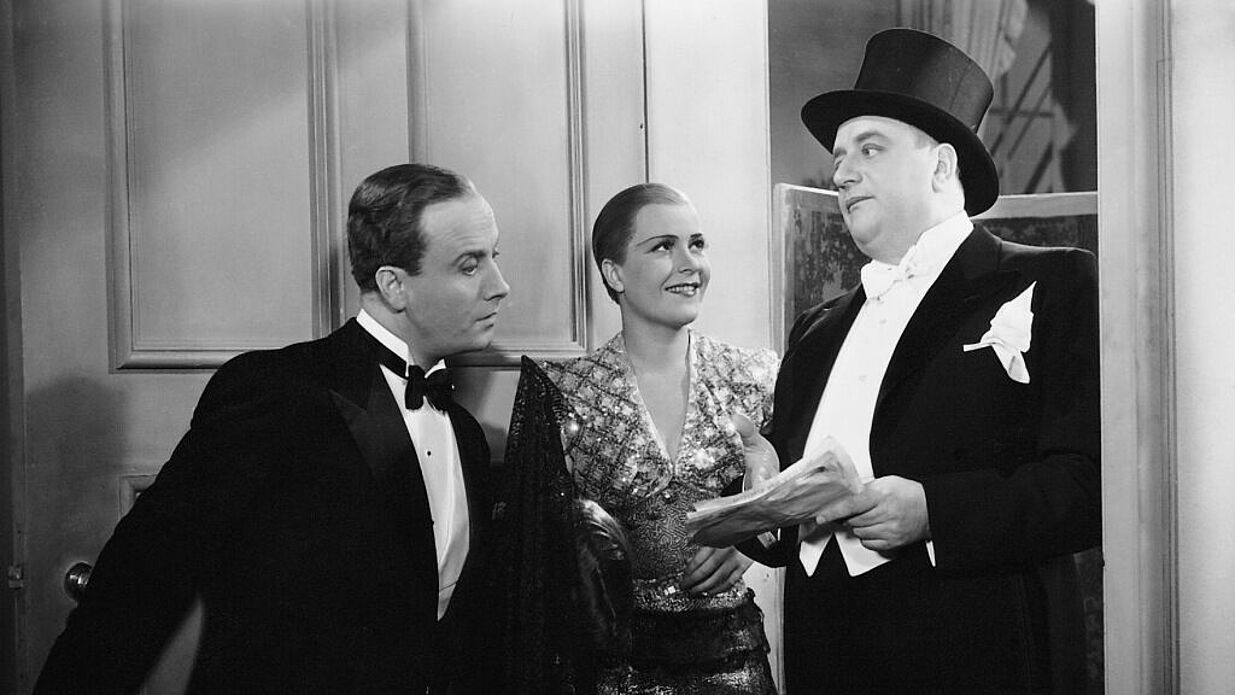"You'll have to remember that name, Müller"
Homage to the actress Renate Müller

"You'll have to remember that name, Müller," is a bon mot attributed to theater critic Alfred Kerr, to the effect that even with a commonplace name like Renate Müller, one could rise to theater and film stardom.
Born into a middle-class family in Munich on April 26, 1906, Renate Müller attended acting school at the Deutsches Theater in Berlin from 1924 and then embarked on a theater career. For the cinema, she discovers comedy king Reinhold Schünzel in 1929, who becomes a mentor for her; seven more films follow until 1934.
In 1930, Ufa signed Müller for the major Emil Jannings production Liebling der Götter, in which she played a self-sacrificing, devoted wife. She thus starts out at Ufa with a type of woman that is clearly different from her later successful films and, like Müller's role in the national conservative blockbuster Das Flötenkonzert von Sanssouci, demonstrates why National Socialist functionaries saw her as the embodiment of an ideal image.
Renate Müller becomes a star with Die Privatsekretärin (1931) and her parade role as a modern, emancipated young woman as well as a patented and fun-loving "comrade." Over time, she perfects this female image, from the stenotypist in Teure Heimat (1929) to the sound engineer in Mädchen zum Heiraten (1932) and Marry Me (1932) to the driving instructor in Die englische Heirat (1934).
Like the protagonists in Irmgard Keun's novels Gilgi (1931) and Das kunstseidene Mädchen (1932), Müller embodies that "young-girl yearning (...) that had seemed attractive and progressive to the women of her generation." (Elisabeth Streit, Whether Viktor or Viktoria, the Chemistry is Right. Die gemeinsamen Filme von Adolf Wohlbrück und Renate Müller, 2020) At the same time, she becomes the "pipe dream of hundreds of thousands of young men in need of marriage and love" (Der Film, 16.4.1932) and is allowed to win over the greatest lovers of German cinema, including Willy Fritsch, Gustav Fröhlich and, above all, Adolf Wohlbrück, with whom she engages in unforgettable amorous exchanges and with whom she is also privately on friendly terms.
Beyond the glamorous film façade, however, life became more difficult, and health problems began to affect Renate Müller early on. Shooting had to be postponed or canceled time and again. The list of films in which she had to be recast is long, sometimes even while filming was in progress, as in the case of Hans Steinhoff's Freut euch des Lebens (1934); Ufa subsequently terminated the contract.
In 1932, Müller met and fell in love with the Jewish banker's son Georg Deutsch. However, his family rejected a liaison with a film star, just as the National Socialist rulers rejected Müller's relationship with Deutsch. After the Nazis seized power, Renate Müller was a guest several times at the film tea in the Propaganda Ministry or at private soirees in Goebbels' house; later she tried to distance herself. She maintains contact with Georg Deutsch, who is now living in exile, for several more years; however, she does not emigrate, even though the pressure from the National Socialist (film) institutions is growing. Müller's last film work will finally be her participation in the propaganda film Togger (1937).
In October 1937, Renate Müller - probably intoxicated - falls from a window of her villa in Dahlem; a few days later, on October 7, she dies in hospital at the age of 31. After her death and especially in the post-war period, numerous rumors circulated: there was talk of suicide and Gestapo murder, of massive drug addiction and severe alcoholism, and even of amorous entanglements with Hitler and Goebbels. The truth of these stories can hardly be determined today. The homage One will have to remember this name, Müller invites instead to the (re)discovery of a special actress, about whose appearance in the lost Schünzel comedy Der kleine Seitensprung (1931) Der Kinematograph once wrote: "She appears elegant, dashing, amiable and radiates (...) that grace which compellingly wins over the audience for her." (22.8.1931)